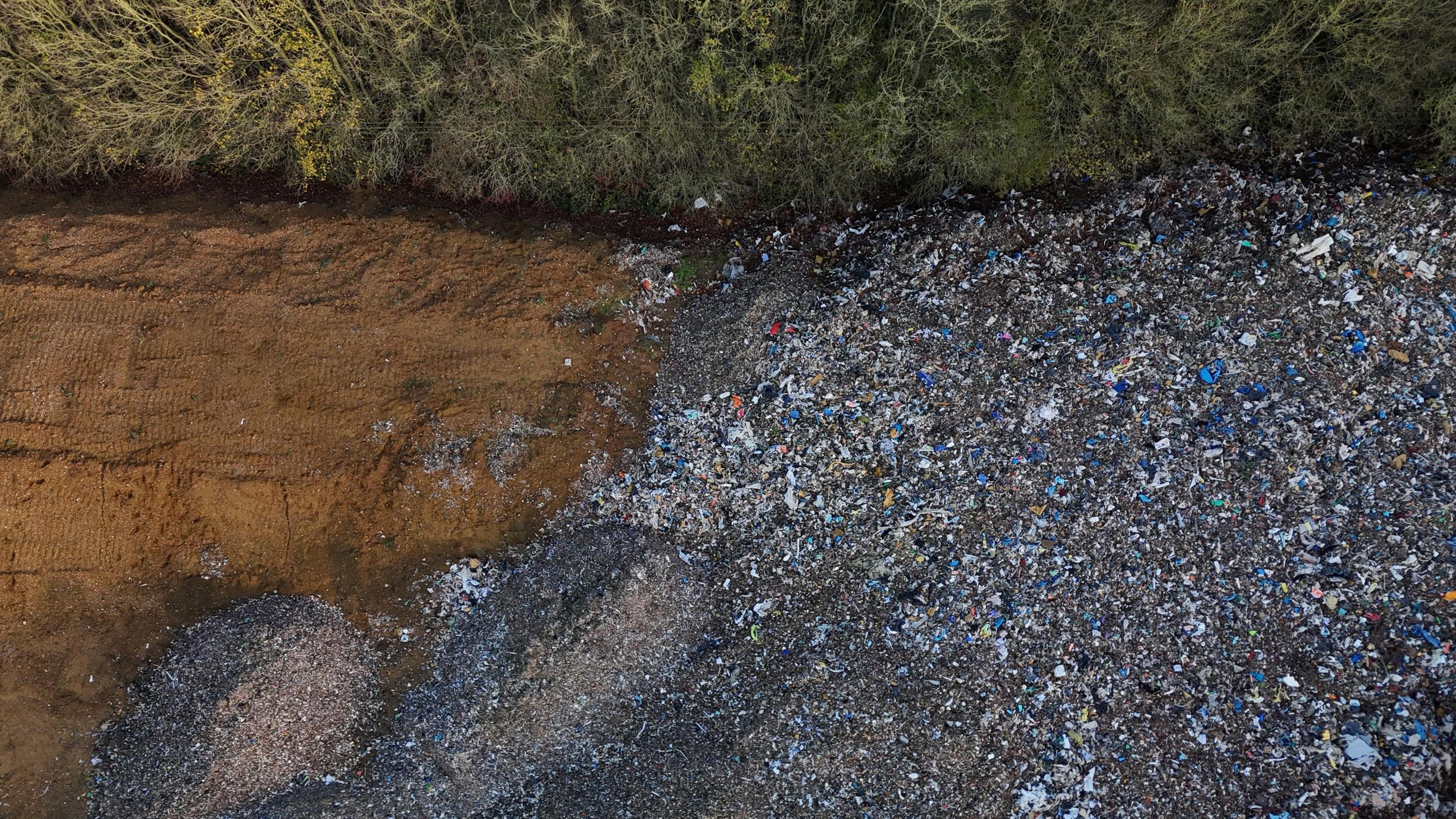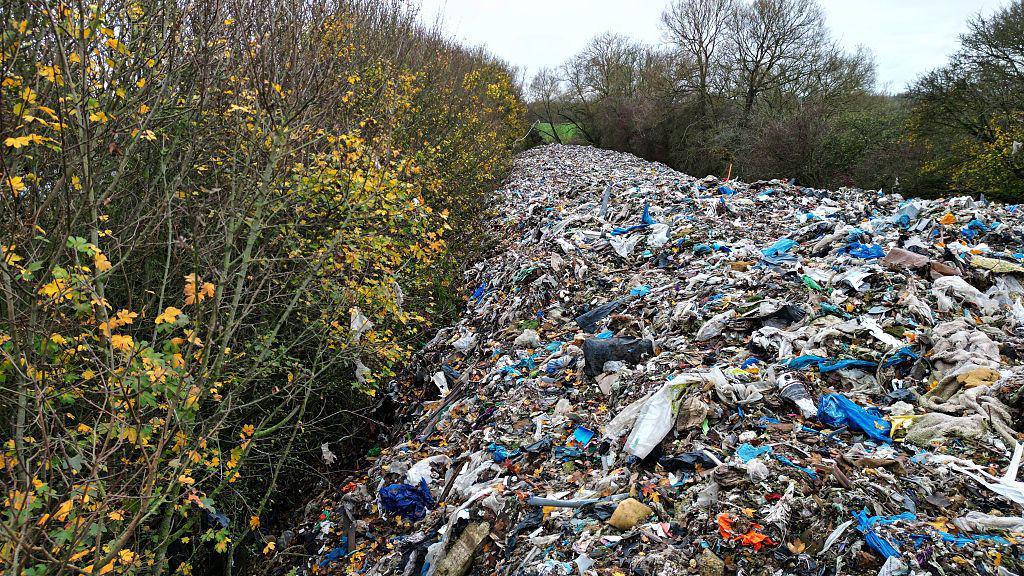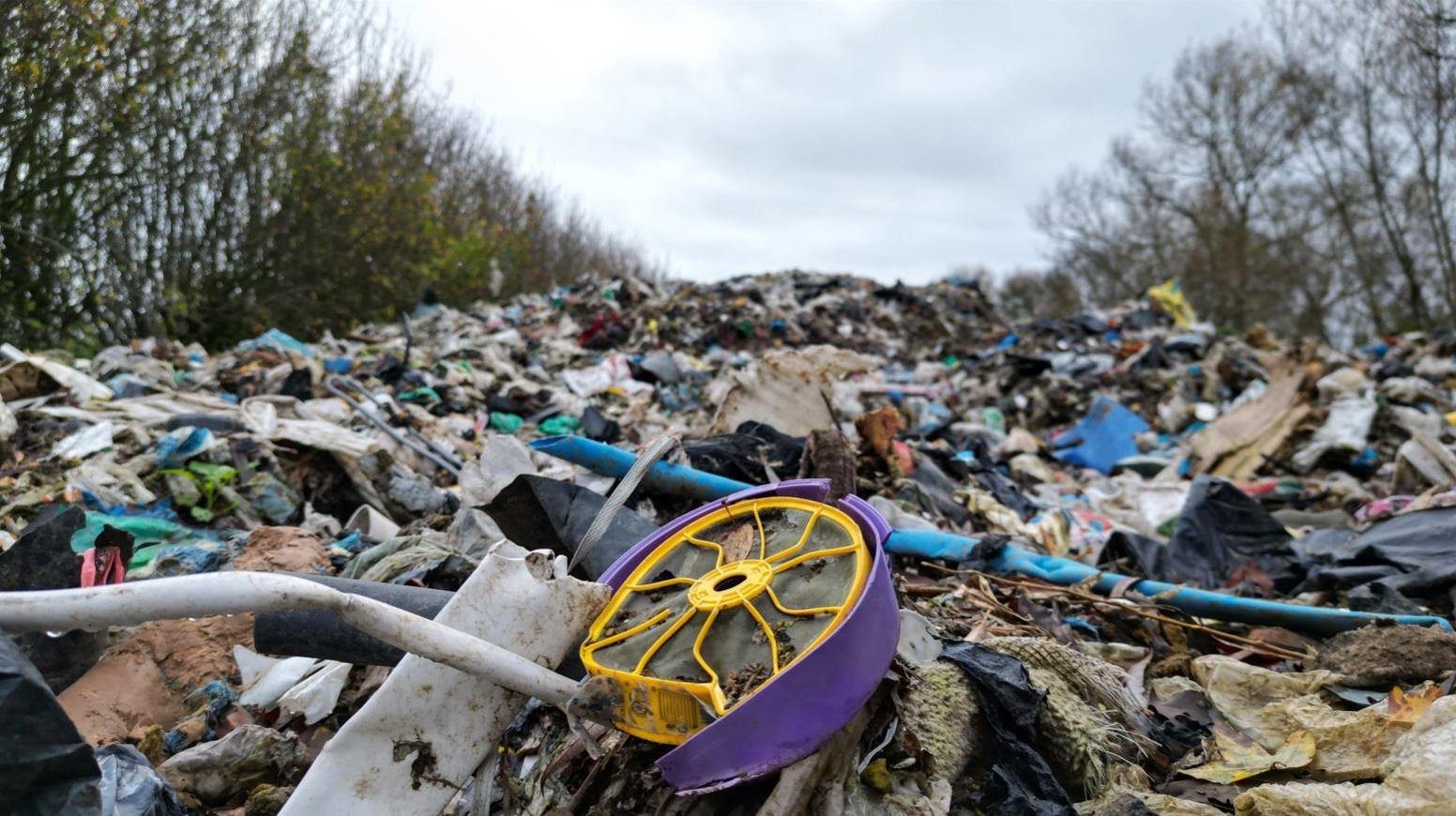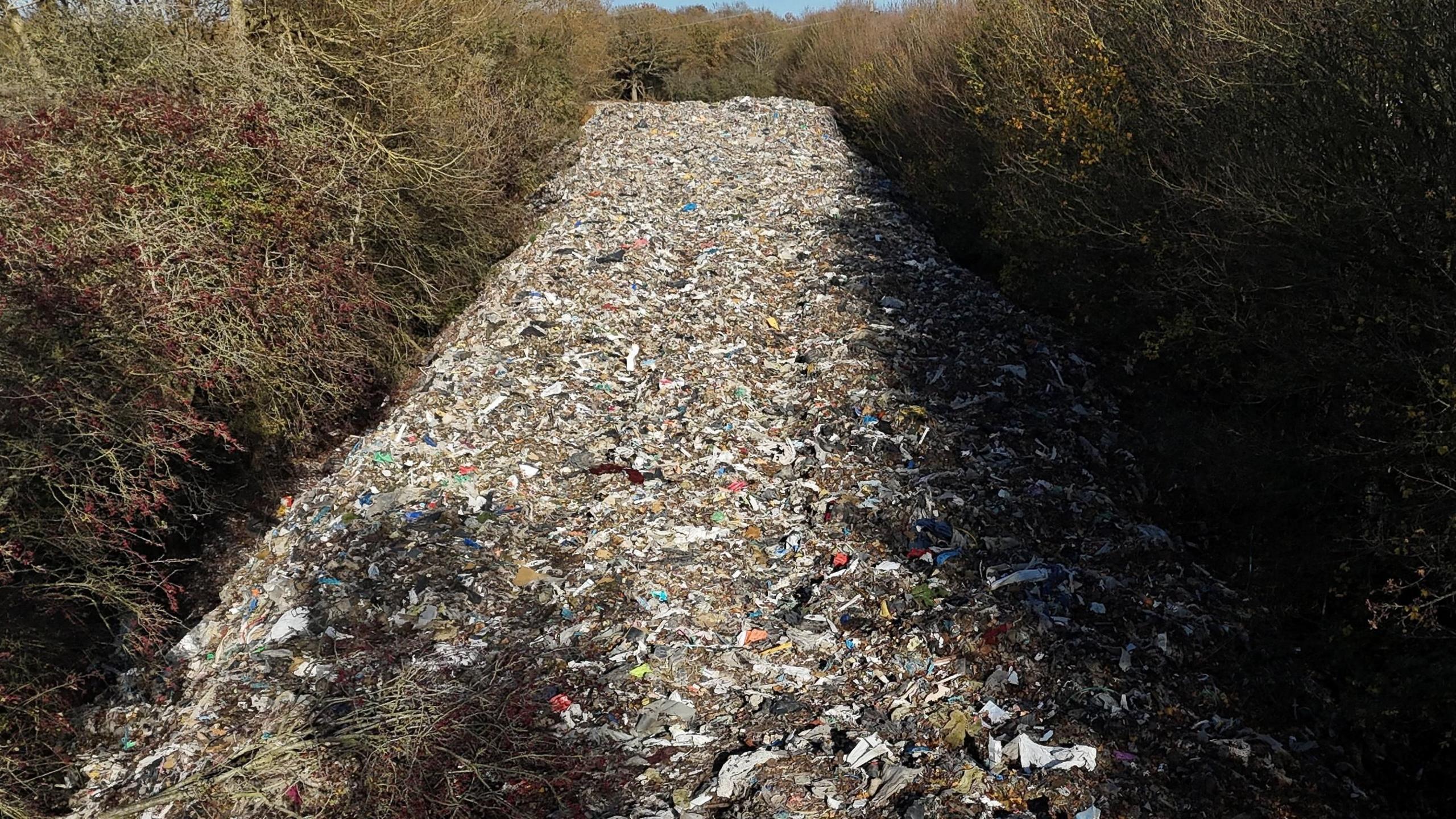Mountain of fly-tipped waste 'could have made £500k'

The Environment Agency said it was investigating who was responsible for the mountain of waste
- Published
More than £500,000 in profit could have been from a mountain of illegally dumped waste near a river in Oxfordshire, a waste management expert had said.
The mound of rubbish stretches for about 150m (490ft) through a field that runs alongside the A34 in Kidlington.
Fly-tippers are thought to have been building up the waste since the summer.
Director of Policy, Communications and External Affairs at the Chartered Institution of Wastes Management Dan Cooke said growing numbers of "organised crime gangs" were becoming involved in illegal waste dumping.
Prime Minister Keir Starmer this week said "all available powers" would be used to make those responsible pay for the clean-up.
Mr Cooke said: "By the dimensions and the rough calculations we've done, somebody could have made in excess of half a million pounds or thereabouts from a single incident like this.
"If you do the calculations taking out processing and transport costs, serious money is to be made."
Fly-tippers buried the field near Kidlington under the mountain of waste
But Mr Cooke said those responsible could face "unlimited fines and substantial jail terms" for committing such crimes.
The landowner of the neighbouring site said he saw truckloads of rubbish dumped there every night for months.
The EA has described the waste mountain as being made up of shredded household and commercial waste, such as paper, card and plastic.
The agency said it had worked "quickly and decisively" since it first visited the site in July, issuing first a cease and desist order to the landowner before obtaining a court order in October to close the site down.
It said it was "confident" it would track down those responsible, but could not "commit to a timeline for when the waste will be cleared".
Prime Minister Keir Starmer described the illegal rubbish heap as "appalling"
Mr Cooke said there was "every chance" those responsible would be caught as there would likely be evidence in the waste that would allow authorities to track them down.
But he said everyone had a duty of care to ensure their waste was being disposed of by a licenced waster carrier, handler and company.
"We all have a duty of care all the way down the chain," he added.
Get in touch
Do you have a story BBC Oxfordshire should cover?
You can follow BBC Oxfordshire on Facebook, external, X (Twitter), external, or Instagram, external.
Related topics
- Published16 hours ago

- Published1 day ago

- Published1 day ago
